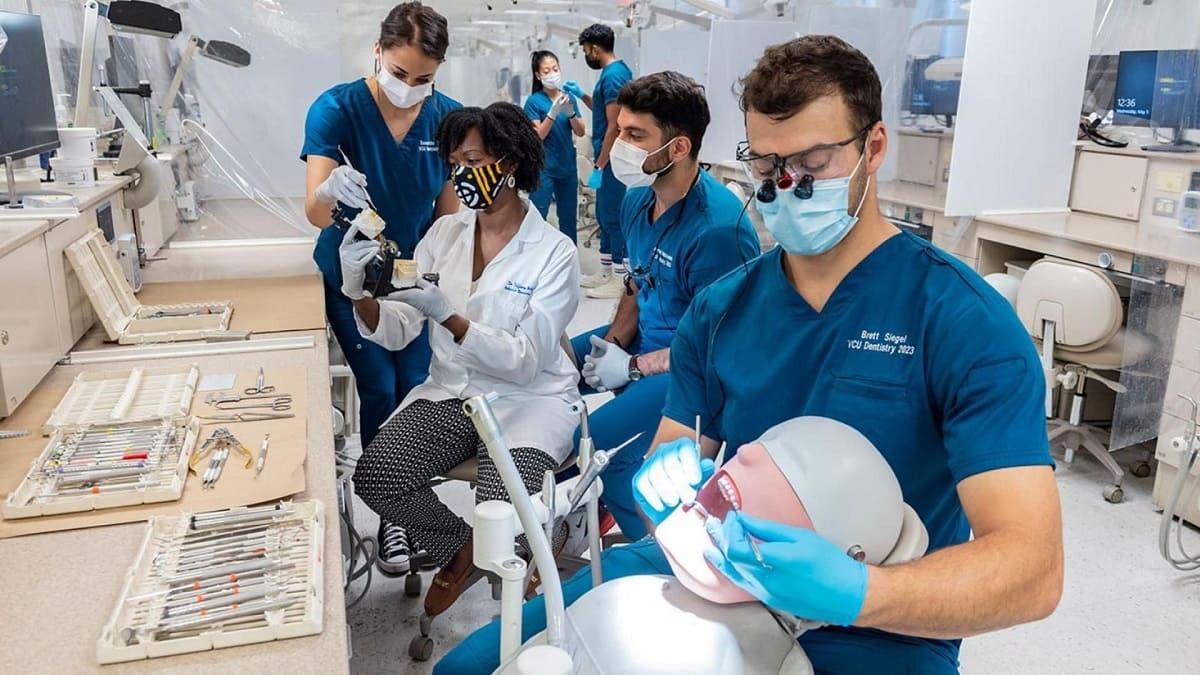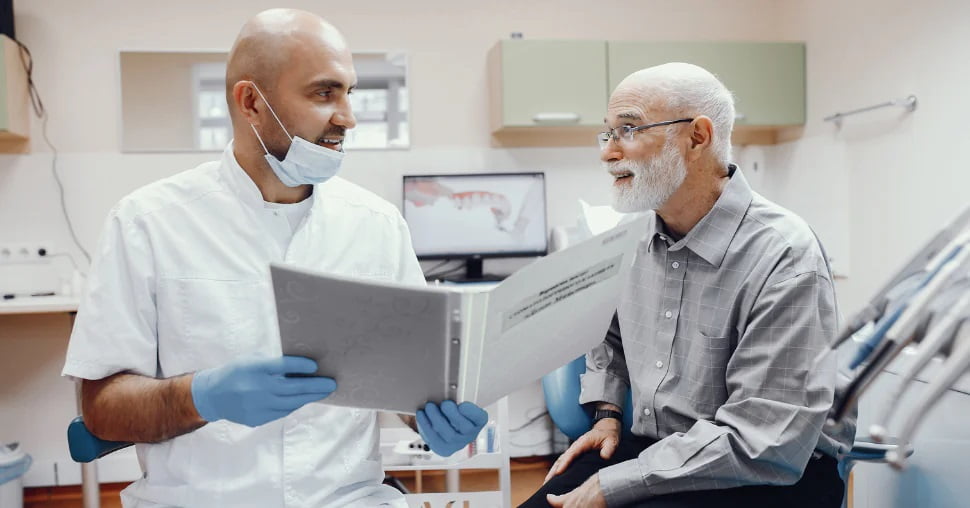Free Dental Grants for Disabled: Dental care is a crucial component of overall health, yet it remains inaccessible and unaffordable for many people with disabilities in America. With the rising costs of dental procedures and lack of sufficient dental insurance coverage, people with disabilities often struggle to get the oral health services they need. Dental grants can provide a valuable source of financial assistance to disabled individuals who cannot otherwise afford dental treatment. As we move into 2024, a range of government and private grant programs will continue providing funding to help disabled people access dental care.
Understanding Dental Grants
Dental grants are funds awarded to individuals that do not need to be repaid. They are offered by various organizations, including federal and state agencies, non-profits, corporations, and private foundations. Grants can cover a portion or all of the costs associated with dental services, helping disabled recipients who meet specific eligibility criteria access the oral healthcare they require.
Unlike dental insurance plans, grants do not require monthly premiums or copays. While insurance provides ongoing coverage, grants are one-time awards. Grants allow disabled individuals to get specific dental treatments, including exams, cleanings, fillings, extractions, dentures, crowns, and more.
Why Dental Grants Are Important for Disabled People
Disabilities can present numerous barriers to obtaining dental care. Many disabled individuals live on extremely limited incomes, relying solely on federal disability benefits like SSI and SSDI. These programs do not provide dental coverage, forcing disabled beneficiaries to pay all costs out-of-pocket.
Other barriers like mobility challenges, accessibility issues, and difficulty finding dentists prevent proper oral health management. Poor oral hygiene exacerbates medical issues for people with disabilities. Grants giving access to dental services can vastly improve disabled people’s overall health and quality of life.
Types of Organizations Offering Dental Grants
Federal Government Dental Grants
- The federal government remains the largest provider of dental grants through programs like:
- Indian Health Service (IHS) – Offers dental care, including cleanings, fillings, and dentures, to eligible Native Americans and Alaskan Natives at IHS facilities.
- Medicare – Covers limited dental services like exams and extractions for qualifying medical conditions for disabled Medicare beneficiaries under 65.
- Medicaid – Includes emergency dental care and sometimes more extensive services through state waiver programs for disabled enrollees.
- Affordable Care Act – Requires most individual and small business health plans to include pediatric dental coverage.
- Federal Housing Grants – This may include funding for dental services through housing assistance programs like Section 8.
State Government Dental Grants
- States administer some dental grant programs using federal pass-through money and state funds. Options include:
- Medicaid Waivers – States can design waiver programs covering dental care for adult disabled Medicaid enrollees.
- CHIP – Provides dental benefits to qualifying disabled children through the Children’s Health Insurance Program.
- State Public Health Grants – Funds services including dental care at government clinics serving uninsured patients.
- Vocational Rehabilitation – Some states include dental treatment to help disabled people secure employment.
- Developmental Disabilities Agencies – Offer dental grants as part of the services for qualifying disabled residents.
Nonprofit Dental Grants
- Many nonprofits and charities have dental financial assistance programs, such as:
- Dental Lifeline Network – Provides free dental care through volunteer dentists to disabled, elderly, and other people with limited options. United Healthcare Children’s Foundation – Offers dental grants to children without adequate coverage.
- Ronald McDonald House Charities – Helps cover dental care costs for severely ill or injured children.
- National Children’s Oral Health Foundation – Offers dental grants and connects families to affordable providers.
- America’s ToothFairy – Supports dental care for low-income children through grants and other programs.
- Special Needs Alliance – Provides grants to disabled people for services like dental treatment.
Private Dental Grants
- Some dentists, dental clinics, corporations, and foundations provide dental grants, such as:
- Aetna Foundation – Offers grants helping fund dental services for disadvantaged populations.
- Cigna Foundation – Supports dental outreach providing care to the underserved.
- CVS Health Foundation – Funds clinics supplying dental care across the U.S.
- Walmart Foundation – Invests in programs increasing access to dental services.
- Henry Schein Cares Foundation – Helps supply dental clinics serving the underserved.
- Colgate’s Bright Smiles, Bright Futures – Improves children’s oral health through school dental programs.
- Local Dentists – May offer reduced rates or pro bono treatment for patients with financial limitations.
Eligibility Requirements
- Each grant program establishes eligibility rules stipulating who qualifies for funding. Common requirements include:
- Having a diagnosed disability – Specific conditions like developmental delays, autism, cerebral palsy, Down syndrome, vision/hearing impairment, or other permanent disabilities may be required.
- Residency status – Some grants only serve residents of certain states or regions.
- Income level – Most grants have income limits, often 200-300% of the Federal Poverty Level.
- Age – Children, adults, seniors, or other age groups may be specified.
- Insurance status – Many grants require being uninsured or underinsured.
- Citizenship – A majority are limited to U.S. citizens or legal residents.
- Specific dental needs – Some grants assist people needing major treatments like dentures or orthodontics.
- Determining eligibility for any grant requires thoroughly reviewing funder guidelines. Consulting the grantmaker directly can also clarify requirements.
How to Find and Apply for Dental Grants
- Locating dental grants involves research across several channels. Once a relevant grant is found, submitting an accurate, complete application improves the chances of approval. Useful tips include:
- Search online grant databases – Try Grants.gov, GrantWatch, Foundation Directory Online, and other aggregator sites listing grant opportunities. Use terms like “dental,” “oral health,” “disability,” etc.Look on grantor websites – Check the websites of funders like government agencies, nonprofits, corporations, dental associations, and private foundations for grant programs.
- Contact benefit programs – Reach out to Medicaid, CHIP, vocational rehabilitation, and similar agencies about dental coverage.
- Use referral services – Oral health advocacy groups like Dental Lifeline Network and America’s ToothFairy connect people to grants.
- Check locally – Search for community health clinics, dental schools, health departments, and hospitals supplying grants.
- Apply annually – Reapply for renewable annual grants as long as eligibility remains.
- Follow instructions – Carefully adhere to all requirements outlined in grant guidelines.
- Supply documentation – Provide financial statements, disability verification, dental records, and other stipulated documentation.
- Use checklists – Ensure applications are fully complete before submitting.
- Applying for every eligibility grant is key to getting help covering uninsured dental costs.
Top Dental Grants to Explore for 2024

Given the expense of dental services, securing grant funding will remain essential for disabled individuals next year. Worthwhile grant programs to explore include:
1. Dental Lifeline Network
This national charitable dental network coordinates with 15,000 volunteer dentists to provide free treatment to qualifying disabled, elderly, and medically fragile patients unable to access or afford care. In 2022, Dental Lifeline Network provided $49 million in donated dental services.
2. Medicare Advantage Plans
Private Medicare Advantage plans will continue offering extra benefits like dental coverage not included in basic Medicare. Shop plans during open enrollment to find affordable options including dental grants or discounted dental care.
3. Medicaid Adult Dental Waivers
Medicaid waivers allowing states to cover comprehensive dental services for disabled adult enrollees will remain critical. For 2024, advocate for your state to implement a waiver if not already active.
4. Special Needs Alliance Subsidy Fund
This fund offers grants of up to $500 helping families of children with disabilities pay for services like dental treatment, assistive technologies, and medical care not otherwise covered.
5. Ronald McDonald House Charities Grants
These grants help families of seriously ill children with expenses like dental bills. Grant amounts vary by chapter.
6. UnitedHealthcare Children’s Foundation
This nonprofit provides medical grants of up to $5,000 covering uninsured dental costs for children 16 and under meeting financial and medical necessity criteria.
7. Autism Speaks Family Services Community Grants
These grants help fund services including dental care for low-income families with autistic children. Grants are dispersed to selected autism organizations, clinics, and schools.
8. CareCredit
This healthcare credit card offers special financing options, promotional credit lines, and deferred interest plans to pay for expensive dental treatments and procedures. It is accepted by most dentists and oral surgeons.
9. Colgate’s Bright Smiles, Bright Futures
This initiative sponsors free dental screenings, oral health education, and treatment programs for underserved children. It provides grants to schools and clinics serving disadvantaged families.
10. Cigna Foundation Grants
The Cigna Foundation provides grants to nonprofits running dental clinics, mobile dental units, and dental care outreach serving underprivileged groups.
Exploring these and other dental grants can enable disabled individuals to secure the dental services they need in 2024 and beyond.
FAQs
Q: Can disabled adults get dental grants?
A: Yes, many dental grants are open to disabled adults. Options include Medicaid waivers, Medicare Advantage plans, nonprofits like Dental Lifeline Network, and local low-cost dental clinics.
Q: Where can I find grants for dental implants or dentures?
A: Foundations like Americare Dental Foundation and Denture Care Assist Foundation offer grants covering dentures. Medicaid waivers in some states may cover implants or affordable dentures for qualifying disabled enrollees.
Q: What grants help with orthodontic treatment?
A: Orthodontic grants are limited but options include nonprofits like Smiles Change Lives and Angel Orthodontic Scholarships. Medicaid sometimes covers orthodontics needing prior approval.
Q: What grants can help cover dental care costs for my disabled child?
A: Great options for disabled children include CHIP, Ronald McDonald House Charities, UnitedHealthcare Children’s Foundation, Autism Speaks grants, Colgate Bright Smiles, and local community foundations.
Q: How do I find free or discounted dental clinics near me?
A: Contact United Way 211, your state or county health department, dental schools, and hygiene programs, Federally Qualified Health Centers, and nonprofits like America’s Dentists Care Foundation to locate reduced-cost dental clinics in your area.
Conclusion
Accessing dental care remains challenging for the approximately 40 million people with disabilities in America. Dental grants from government agencies, nonprofits, corporations, and private funders help provide financial assistance for exams, cleanings, crowns, bridges, fillings, extractions, dentures, and more. Grants give disabled individuals who cannot afford or obtain adequate dental insurance the ability to improve their oral and overall health.
As we move into 2024, dental grants will continue serving as a valuable resource. Connecting to grants involves reaching out to multiple sources, and finding programs aligning with your specific situation and dental needs. With persistence and planning, those facing barriers to getting essential oral healthcare can utilize grants to fund dental treatment. Maintaining dental health is difficult but attainable for disabled people through grants providing financial assistance and access to quality affordable care.
Mustafa Al Mahmud is a passionate medical writer and health enthusiast. He is excited to share his knowledge and make reliable health information more accessible through Quick Medico. Mustafa aims to write about common diseases, medications, wellness topics, and the latest health research in easy-to-understand language. He believes clear and accurate health communication empowers readers to take charge of their well-being. In his free time, Mustafa enjoys hiking, cooking, and spending time with his family.
